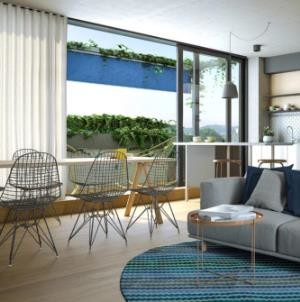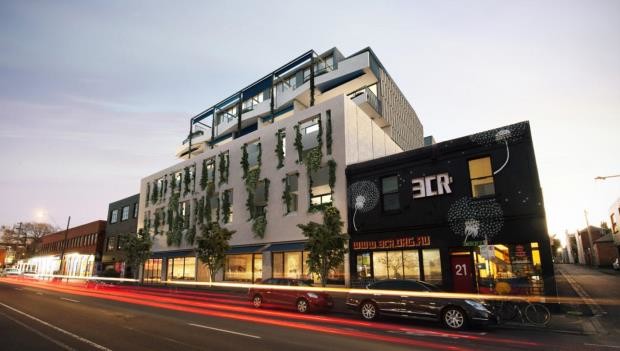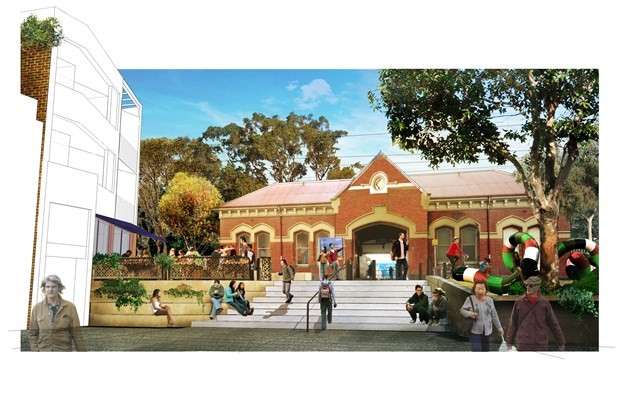A Melbourne-based developer with an interesting background, among other things, James Tutton is the founder of Moonlight Cinema (he sold the business in 2006), and the co-founder of not-for-profit group Smiling Mind, whose free mindfulness meditation app is used by more than 400,000 people.
The director at 'design and socially-focused' residential group Neometro describes the ‘the triple bottom line’ approach.
Whether you’re an architect, interior designer or developer, we all have a role to play in creating homes that make people happy.
But the perception is that we aren’t doing a great job. Tiny apartments, little focus on design and a lack of regard for the community in which we operate are the hallmarks of the criticism we all face on a daily basis. Profits reign supreme in the battle to create our cities, but what so many are doing is destroying the very fabric of our communities.
At Neometro we believe in the old fashioned view of business as a force for good. Success for us is defined by the delivery of social, community and financial outcomes – we call it the triple bottom line approach and it's a growing theme for progressive, successful entrepreneurs.
For us at Neometro the triple bottom line approach relates exactly to how we feel about projects – if we don’t feel a project is contributing to the city, to the people who will live in it, we simply won’t do it. We should all be applying the age-old ethical position that sits in Christian thinking, Judaism and Buddhism – a golden rule, which when applied to our industry reads, “If I would not live there, I can’t expect others to.”
 Within the business, this has led us to only collaborate with architects who share our philosophy. It means we sacrifice yield in favour of better layouts and amenity – this is obvious at our Nine Smith Street project in Fitzroy where we split the development across distinct East and West buildings to create a generous central courtyard to achieve better outlooks for each apartment, cross ventilation and natural light. The yield could have been higher but it would have been a significant loss to amenity.
Within the business, this has led us to only collaborate with architects who share our philosophy. It means we sacrifice yield in favour of better layouts and amenity – this is obvious at our Nine Smith Street project in Fitzroy where we split the development across distinct East and West buildings to create a generous central courtyard to achieve better outlooks for each apartment, cross ventilation and natural light. The yield could have been higher but it would have been a significant loss to amenity.
Nine Smith Street, pictured left and below. Courtesy Neometro

It means we encourage our teams to constantly question designs. We want to make sure our spaces work hard in terms of practicality, amenity and design. It gets to the point where we’re debating the exact placement of a power point and the depth of storage for a hairdryer.
In pursuing this approach, we aim to design buildings that ‘age-in’ rather than date. Our materials are selected for their longevity and their natural qualities, whether it be in-situ concrete, timber or stone. And our focus is on creating buildings that work passively through the consideration of cross ventilation, solar aspect, operable shading, double glazing and insulation from the outset.
The approach isn’t just about design though – it’s also about the community. In design this means creating beautiful commercial spaces that will activate the street frontage. Through the natural timber doors and windows we select, it helps avoid the 7/11 style tenants that don’t bring a lot of cultural value to a place.
We also believe in taking it one step further and activating even before completion. When we launched Nine Smith Street what didn’t sit right with us was the fact we had purchased a space that would sit empty for 12 months until we started demolition. So we handed it over to the community.
Curator, Melissa Loughnan, came on board an opened Slopes, a not-for-profit art gallery giving artists an exhibition space to show work which would not be suited to a commercial gallery. We hosted the pilot site for 3000acres, an urban gardening project now sprouting all over the city, which transforms under-utilised spaces into edible gardens for residents. Reflecting the coffee culture of the area we also provided space for start-up coffee space Placeholder.
Social and community benefits are also a major part of our work revitalising Jewell Station in urban Brunswick as part of the Victorian Government’s Station Precinct Enhancement Program. There we have created a masterplan that encourages healthy, active and connected living through an integrated mix of social enterprise, creative-focused commercial space, smart housing and flexible parkland.
 Visit the Jewell station website to see detailed designs and masterplan documents
Visit the Jewell station website to see detailed designs and masterplan documents
We’ve seen the triple bottom line approach in action and it’s what the industry needs to embrace to ensure we don’t spiral out of control, unchecked – particularly as the debate rages about high density living. We don’t need brakes put on us, as some argue, we need principles to ensure we’re delivering great outcomes for our communities.
If we can embrace an approach as committed to social and community outcomes as finances, we can deliver meaningful benefits to the Australian population, reaching far beyond the aesthetic impact of beautiful streetscapes.

